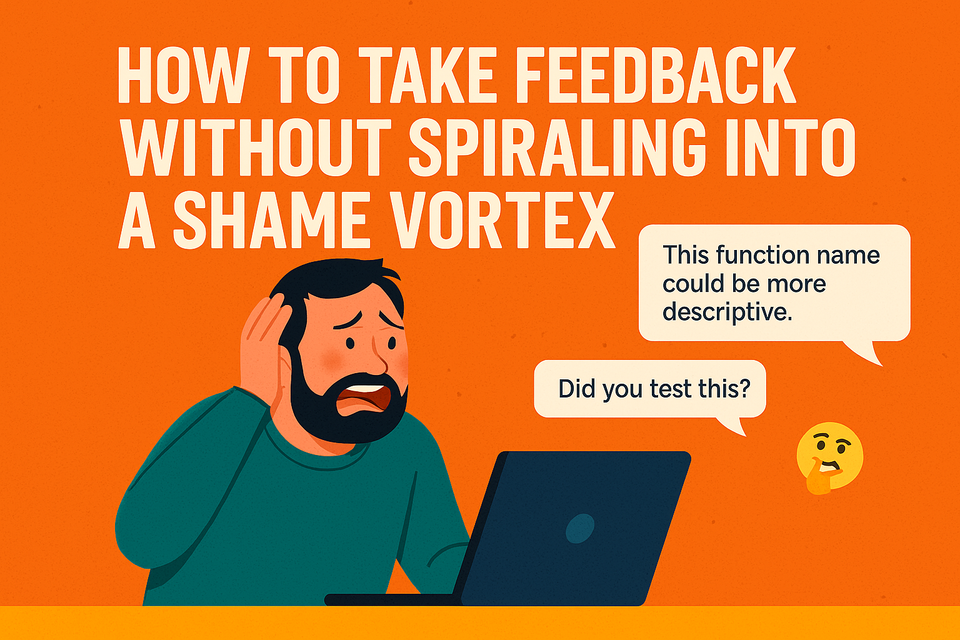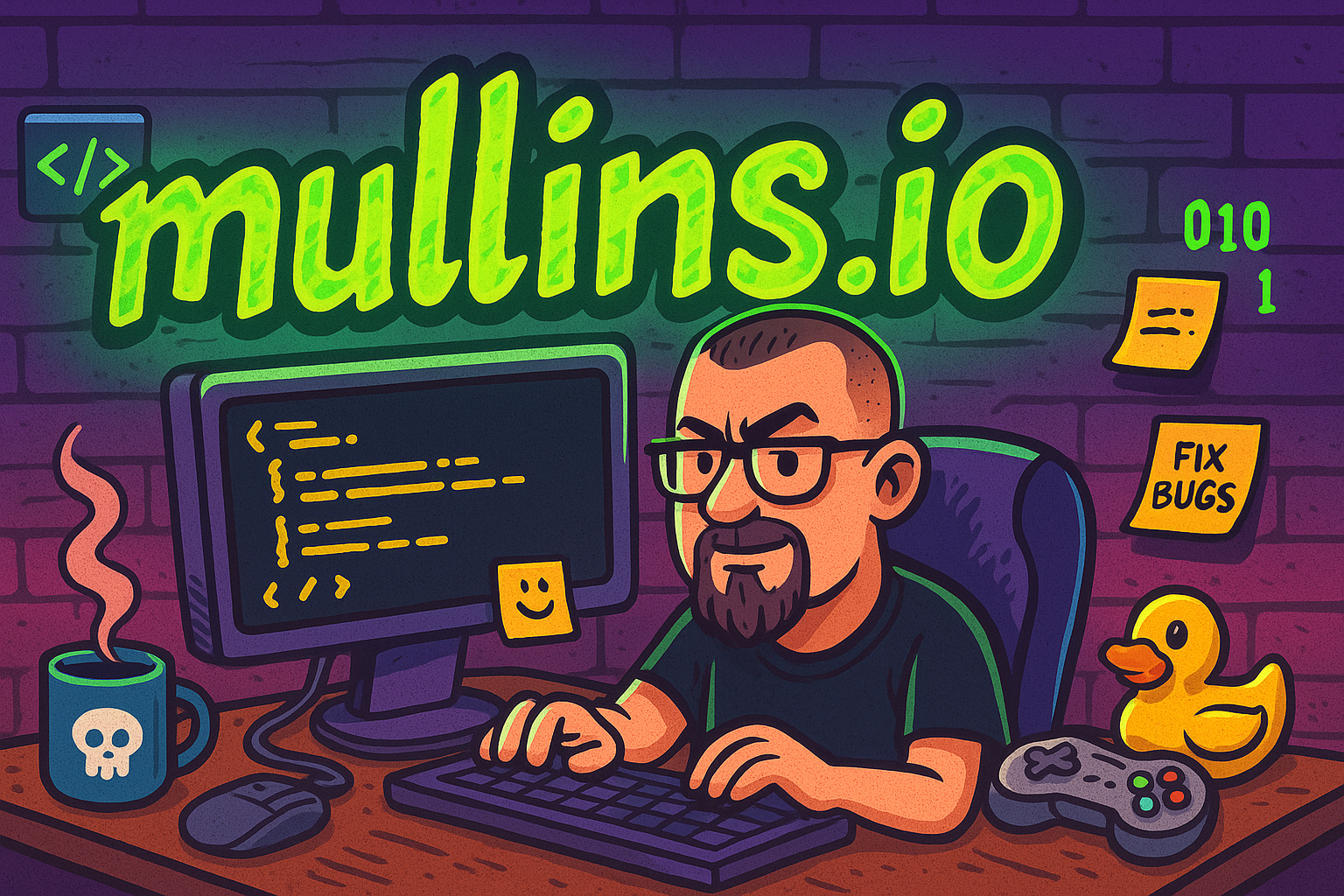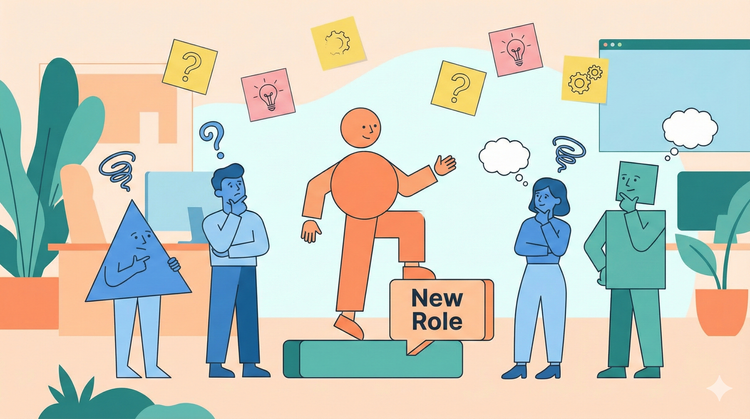How to Take Feedback Without Spiraling Into a Shame Vortex

We’ve all been there. You push your code, grab a coffee, and wait for the dopamine hit from your glowing review.
Instead, you get:
“This function name could be more descriptive.”
“Did you test this at all?”
“🤔” (just the emoji. Pure chaos.)
Suddenly you’re not just doubting the code—you’re doubting your career, your life choices, and whether or not your parents were right when they told you to go into accounting.
This post is your guide to taking feedback like a pro, not a panic goblin.
1. Breathe. You’re Not Getting Fired.
That first wave of heat behind your ears when someone critiques your work? Normal. That tight feeling in your chest? Also normal. It’s your ego flinching. Give it a juice box and tell it to chill.
2. Listen to Understand, Not to Retaliate
Your job isn’t to defend every line like it’s your child in a custody battle.
Listen. Read the feedback. Walk away if needed. (Seriously. Go get a snack. It helps.)
Then come back and figure out why that comment was made. Code review isn’t personal—it’s maintenance for your brain.
3. Ask Questions, Even If You’re Dying Inside
If you don’t get it—ask. If it feels harsh—ask for clarity. If you disagree—respectfully push back. Good reviewers will explain. Great ones will even learn something in return.
And if they can't back it up? Congrats. You're not wrong. You're teaching.
4. Sort Feedback Into Two Piles: “Useful” and “WTF”
Not all feedback is good. Some people are bad communicators. Some are just wrong. Separate signal from noise:
Useful: “This logic is unclear.”
WTF: “You always do this wrong.” (Run from this.)
Pro tip: If feedback lacks actionable next steps, ask, “What would make this better?”
5. Sit With It. Then Level Up.
Sometimes the hardest feedback is also the most valuable. Especially the kind that stings a little because you know it’s right.
You don’t have to love it today. Just use it tomorrow.
6. Feedback Is a Sign You’re Trusted Enough to Get Better
No one gives feedback to someone they don’t care about improving. Radio silence is worse. Feedback means they see your potential.
Even if they have the emotional intelligence of a potato.
Conclusion:
Learning to take feedback without imploding is a skill, one most devs learn the hard way.
But once you master it? You become unstoppable. Resilient. Calm. The kind of dev who can take notes and ship great code without dissolving into existential dread.
Now go refactor that variable name, take a deep breath, and know you're doing just fine.
Hey, since you made it this far, you might actually care about becoming a better leader.
Good news: I wrote an ebook that’ll help you skip years of trial and error.





Comments ()